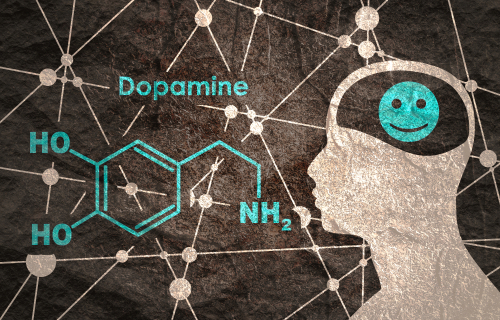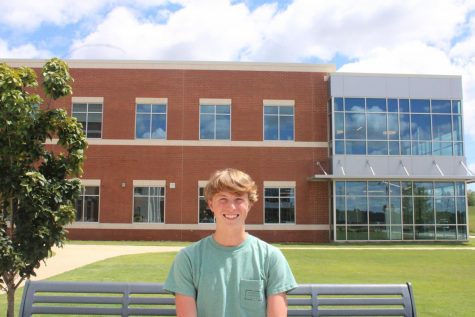Love at First Sight
Is it love…or chemical compounds?

Photo courtesy onlinepsychologydegree.info
Dopamine is the main chemical in the brain that allows people to feel happiness and love.
For many years, scientists have wondered what love is. No one really knew what made two people attracted to one another and have a bond strong enough to potentially start a life together. As confusing as it may be, there is a scientific explanation behind the concept of attraction, and how two people can be seemingly pulled together by an “invisible force.”
Attraction is the idea that two people like certain aspects of the other person, and they receive a certain “rush” from that liking. This “rush” behavior is why the first few months of dating can be an exhilarating process. The main reason for this isn’t because of true love waiting, but rather something more scientific: dopamine. Dopamine is the main pathway in the brain that allows the body to experience pleasure and happiness.
Katherine Wu is a third-year graduate student at Harvard University who studies science. In her assessment on harvard.edu of dopamine and its effect on attraction, she recognizes that this hormone (along with others in the brain) can make people giddy and excited when they find someone they are interested in.
“Brain scans of people in love have shown that the primary ‘reward’ centers of the brain, including the ventral tegmental area and the caudate nucleus, fire like crazy when people are shown a photo of someone they are intensely attracted to, compared to when they are shown someone, they feel neutral towards (like an old high school acquaintance),” Wu said.
Students in AP Psychology have learned about transmissions that occur in the body when they experience love or loss. As previously discussed, this feeling of love refers to the release of dopamine in the brain to the rest of the body. But the brain must know how and when to release this chemical, and that is where neurological transmissions play into love.
Tamaria Dawkins (12) takes Honors Psychology and enjoyed learning about the way people’s bodies send signals to their brain. She learned that it’s these signals that trigger the way humans react to certain things in life.
“When you experience a touch that is pleasant or see someone you love, the direct response of your brain is to release dopamine and other hormones because of the neurotransmissions that occurred with your senses,” Dawkins said. “That’s why we can experience love or companionship and the feelings along with it.”
While neurotransmitters and hormones take up a large part of the experience of love, it can be argued that the experiences in life that are witnessed and gone through have an equal, if not greater, impact on love. Love is often described as something that “floats above” the consensus and natural borders of life. Instead, it is more of a concept, rather than an experience felt through chemical reactions.
Andrew Kongkeo (12) is a firm believer in the idea that love is something that can happen between anyone, and the bond that forms between them is something that cannot necessarily be defined by the most modern barriers to science.
“There is definitely a science behind love and that cannot be ignored,” Kongkeo said. “But I also believe that the connection and shared interest’s impact love, whether it be from a partner or friendships, that aren’t necessarily bound by science.”


